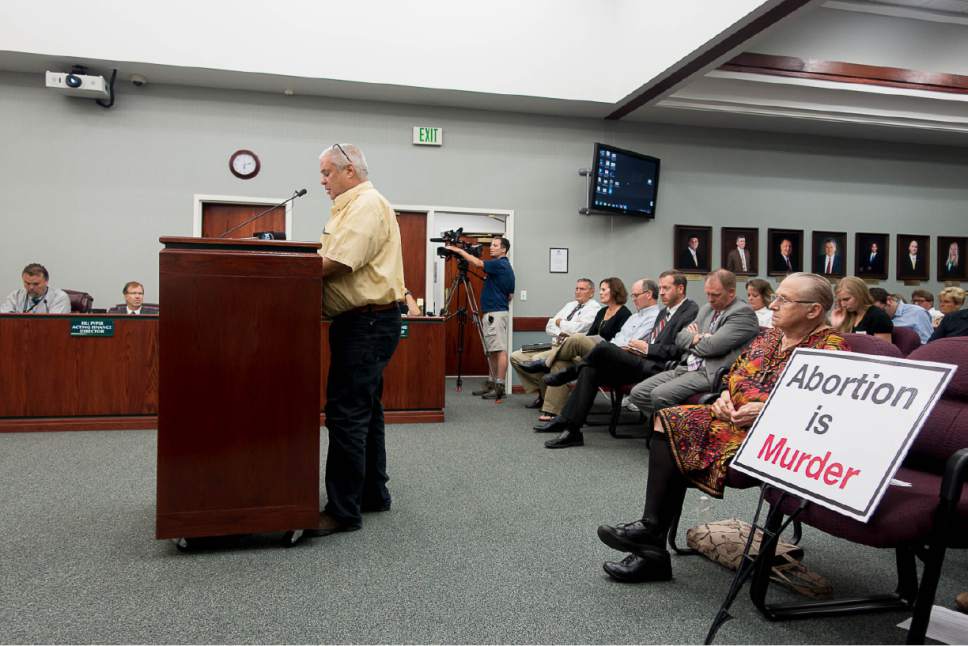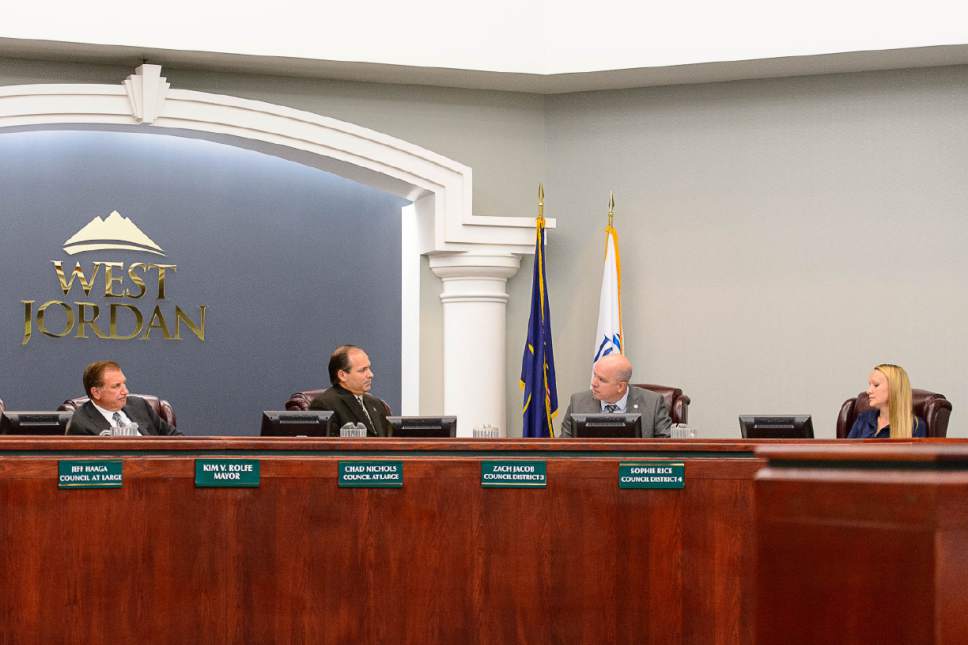This is an archived article that was published on sltrib.com in 2016, and information in the article may be outdated. It is provided only for personal research purposes and may not be reprinted.
West Jordan • In the economic development version of "The Walking Dead," West Jordan's attempt to lure Facebook to the suburban city, declared demised hours earlier, appeared to be back, as officials spent part of Wednesday scrambling to resuscitate the incentive-rich package.
The ball now appears to be in Facebook's court — take a scaled-back package offered by the state school board Tuesday night, or walk away and take a more lucrative offer from Los Lunas, N.M.
Representatives from Facebook reportedly spoke to West Jordan officials Wednesday, and the city posted a statement on its Facebook page that morning that read: "This is too good of an opportunity for Utah to pass up, so we have been working throughout the night and will continue through the day to keep the project alive."
The West Jordan City Council punted Wednesday evening on discussing whether to shrink the 1,700-acre Economic Development Area, part of which would be home to as many as six Facebook data centers.
"There'll be no discussion tonight of the Discus Project," Mayor Kim Rolfe told the council. "We are in negotiations and have nothing further to report."
At the meeting, residents who mentioned the Facebook effort, code-named "Project Discus," were supportive of the effort.
"Thank you, thank you, thank you. We need business in West Jordan," said longtime resident Alexandra Eframo, who also thought it was "despicable" that the state school board would not approve the incentives backed by the city and the local district. "In my opinion, they slapped the face of the Jordan School District."
The district approved the incentives, though it expressed concern that they were too generous.
The 24 hours of turmoil was sparked by reservations by the Utah Board of Education — one of eight taxing entities with a vote on approving the Facebook incentive package — that the city and school districts were giving up too much taxpayer money to land the Facebook plant.
The board indicated that it would only approve an incentive capped at $100 million for the first phase of the project, the first two buildings of as many as six that Facebook could build at the site. West Jordan has offered the company $185 million in tax breaks from the city, school district, county and other taxing entities, and another $10 million in energy and sales-tax breaks.
West Jordan City Manager Mark Palesh had said Tuesday that the company wasn't willing to negotiate any further on the deal. But in its statement Wednesday, the city said it terminated the agreement so it could "start fresh."
State school board member Stan Lockhart, who expressed concern Tuesday that the incentive package was too generous, said he still hopes Facebook chooses to locate in West Jordan, believing the plant would bolster Utah's reputation and help support Utah schools and communities.
"Their technology is part of our lives, and it would just be a real [benefit]," Lockhart said. "I really believe that Facebook will become a key part of our community from the branding sense and in participation — in being a good neighbor and a good corporate citizen."
Salt Lake County Mayor Ben McAdams, who fought hard to block the Facebook incentive, arguing it was too generous and amounted to taxpayer-funded corporate welfare, told a group of business leaders Wednesday that these incentives tend to be "zombie" deals — and it could rise from the dead.
McAdams was noncommittal Wednesday evening on whether he would be willing to support the deal if it included the cap requested by the state school board. He said he would want to meet with the governor and his economic development leaders to understand what incentives the state might be dangling for Facebook and how the whole package would fit together.
After the school board's vote, a city news release offered well wishes to competitor Los Lunas, N.M.
"[T]he long courtship of this company has had a negative impact on the working relationships of the several state and local entities involved," the city wrote, "which must be repaired for the good of all citizens of Utah."
Palesh added Tuesday night that "the big difference is New Mexico, from the governor on down, opened the doors wide and rolled out the red carpet" for Facebook, while Salt Lake County Mayor Ben McAdams led a vocal opposition to the proposal in Utah.
While the city saw Facebook as a potential "anchor" for high-tech development in the area, opponents said the incentive wasn't worth the number of permanent jobs the facility would create (estimates to range from 50 to 300) or Facebook's demand for a capacity of 4.8 million gallons of water per day while area residents are asked to conserve. Some worried that such a loaded offer would set a harmful precedent for future negotiations with other businesses.
The Albuquerque Journal reported that the village of Los Lunas approved a 100 percent property tax abatement over 30 years for a Facebook data center in exchange for annual payments in lieu of taxes that begin at $50,000 and increase to $100,000, compared with West Jordan's offer of a phased property tax break — from 75 percent to 100 percent — over 20 years.
But there were no subsequent reports that Facebook had sealed its deal with Los Lunas, nor did Palesh say he'd heard from the company before the city issued its release saying the negotiations were over.
Twitter: @matthew_piper, @robertgehrke







